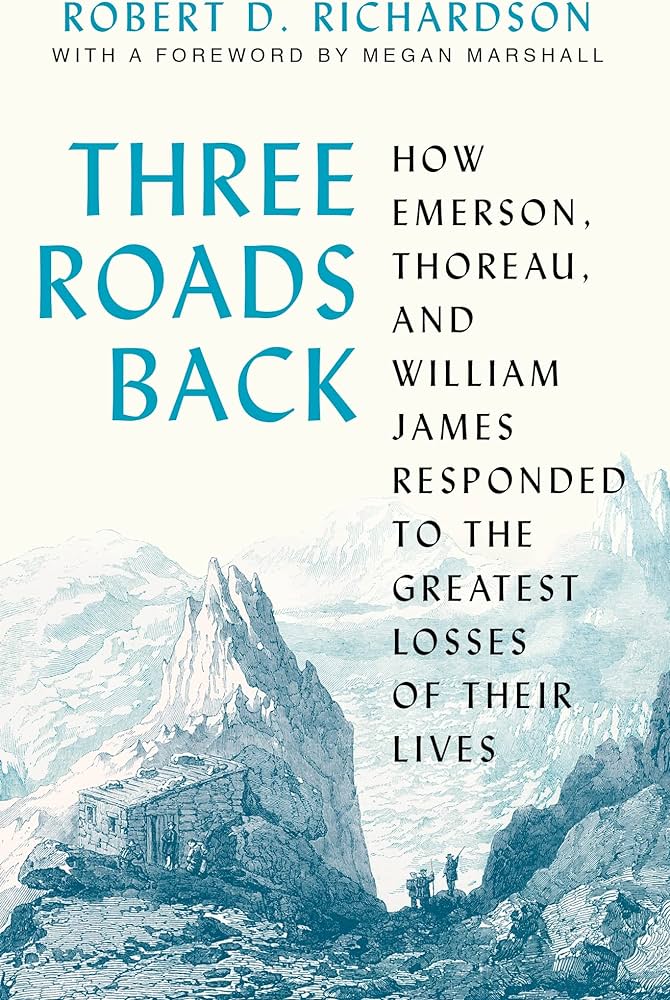The effect of this little volume, which looks hardly more than a pamphlet, is wholly out of proportion to its modest dimensions. Robert Richardson died in 2020 at the age of eighty-six, and Three Roads Back is a fitting coda to his greatest achievement: the trio of biographies of Henry David Thoreau, Ralph Waldo Emerson, and William James that he published between 1986 and 2006.
Richardson’s lengthy subtitle here, “How Emerson, Thoreau, and William James Responded to the Greatest Losses of Their Lives,” refers to the bereavements that, similarly and remarkably, all three men suffered in their early adult years. Emerson’s first wife, Ellen, died of tuberculosis in February 1831, when she was nineteen and he twenty-seven. Her last words on her deathbed must have afforded him a grain of comfort: “I have not forgot the peace and joy.” As Richardson wrote in his biography, Emerson’s “heart was with the dying, but Ellen’s was still with the living.”
On New Year’s Day 1842, in Concord, Massachusetts, Henry Thoreau’s brother, John, cut a finger while shaving. Ten days later he died in his brother’s arms of lockjaw—tetanus—following on the seemingly trivial wound. He was twenty-seven, and Henry was twenty-four. Afterward Henry wrote to a friend that his brother “was perfectly calm, even pleasant while reason lasted, and gleams of the same serenity and playfulness shone through his delirium to the last.” Richardson suggests that “Henry was putting a good face on a scene that was not all calm and serene.” Indeed, by all accounts death from lockjaw was in those days inevitable and agonizing.
The tragedy experienced by William James—who was born on the day that John Thoreau died—is more ambiguous than those that befell the other two great thinkers. In the summer of 1868, at the age of twenty-six, he was sunk in depression. In his diary, addressing himself in the second-person singular, he spoke of wanting to die, since “with you there are so many things that lead to nothing and which are nothing but disgusting.” Not quite two years later, he was still sunk in despair when, on March 8, 1870, his cousin Minny Temple died, like Ellen Emerson, of tuberculosis. She was twenty-four.
